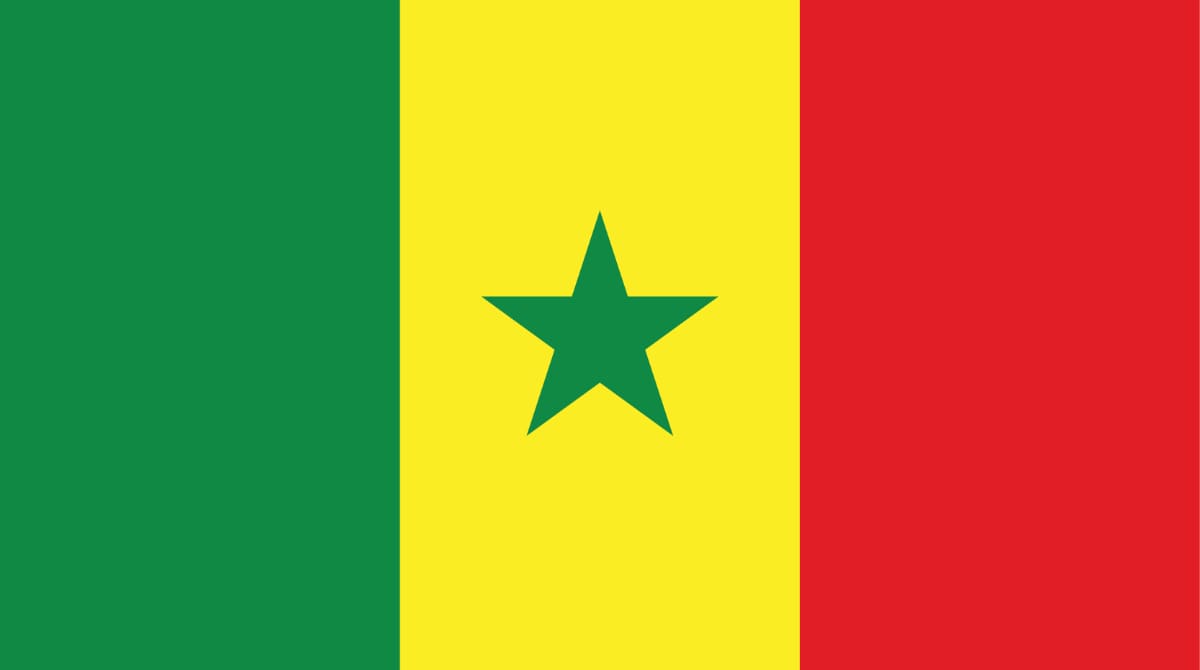At a glance
CDC began working in Senegal in 2001 and established an office in 2015. CDC Senegal works closely with the Ministry of Health and Public Hygiene (MOH) and other partners to build effective public health systems to detect, prevent, and respond to public health threats. CDC’s work aims to protect the health of Americans and support public health around the world.

Key accomplishments
- Established an electronic data collection platform (DHIS2) and case-based reporting forms for nine priority diseases at all levels in the country.
- Supported the HIV Reference Laboratory in becoming the first public health lab in West Africa to achieve international accreditation and developed the country's local capacity for timely testing and confirmation of meningitis cases.
- Supported training for 471 surveillance officers who graduated from the Field Epidemiology Training Program (FETP) and trained over 1,000 community health workers on disease reporting.
- Established the national Public Health Emergency Operations Center, which serves as the hub for coordinating preparedness and response activities including addressing outbreak investigations for dengue, yellow fever, Crimean-Congo hemorrhagic fever, acute flaccid paralysis, the COVID-19 pandemic, and most recently the Rift Valley fever and monkeypox outbreaks.
Global health security
CDC Senegal implements activities to support global health security through MOH and partners. CDC provides technical and financial support to MOH in the four core Global Health Security Agenda action packages. These include laboratory systems, surveillance, workforce development, and emergency operations.
Disease surveillance
Senegal’s Integrated Disease Surveillance and Response (IDSR) system reports on 52 diseases. As many as 16 diseases are reported on a weekly basis. Since 2017, CDC has supported Senegal in expanding IDSR to the community level. CDC continues to support MOH in disease case-based and community-based surveillance through the national information system (DHIS2). This system is actively being deployed across the country.
Emergency management
CDC, with support from the Defense Threat Reduction Agency, helped Senegal establish its national Public Health Emergency Operations Center (PHEOC). Since its launch in 2017, Senegal’s PHEOC has served as the hub for coordinating preparedness and response activities. Activities have included outbreak investigations for dengue, yellow fever, Crimean-Congo hemorrhagic fever, acute flaccid paralysis, COVID-19, and most recently monkeypox and Rift Valley Fever outbreaks.
Public health and medical professionals trained through CDC’s Public Health Emergency Management Fellowship and trained rapid response teams have been instrumental in supporting these activities. Senegal is planning to implement regional Emergency Operating Centers, and CDC will continue to provide support through trainings, mentorship, and technical support.
Laboratory systems
A network of laboratories has been established across Senegal, spanning national, regional, and district levels. Samples collected are analyzed in these designated laboratories to ensure effective patient management and to inform surveillance systems. CDC helps ensure accurate and timely detection of pathogens. CDC collaborates with the MOH to enhance testing capabilities and strengthen laboratory systems, including quality management, biosafety, and biosecurity. With CDC support, laboratory data management and notification capabilities have been enhanced.
CDC helped upgrade and deploy the laboratory information system, LabBook, in regional and district laboratories.
Workforce development
Since 2015, CDC strengthens the capacity of Senegal’s workforce to investigate and respond to disease outbreaks through FETP. CDC collaborated with the African Field Epidemiology Network (AFENET) and Senegal’s PHEOC to launch the Surveillance Training for Ebola Preparedness (STEP). STEP was a 5-week FETP designed as surge training to strengthen the country’s ability to quickly respond to the outbreak.
Since then, CDC has supported the MOH to successfully train 471 frontline FETP trainees and 34 intermediate FETP trainees. FETP graduates focus on animal health, environmental health, and human health and are from all levels of the health structure in Senegal.
In addition, CDC supported the training of 10 medical and surveillance officers from Senegal at the West Africa Regional advanced FETP program in Burkina Faso. FETP graduates serve as mentors for the FETP frontline and intermediate levels and play a leading role in all disease outbreak and investigation activities in the country.
HIV and TB
As a key implementer of the U.S. President's Emergency Plan for AIDS Relief (PEPFAR), CDC plays an essential role in the fight against HIV and TB. With unmatched scientific and technical knowledge and long-standing relationships with ministries of health, CDC is uniquely positioned to advance HIV, TB, and other global health security activities that keep Americans safe at home and abroad.
Through PEPFAR, CDC provides critical support to Senegal's public health infrastructure, improving the country's ability to prevent, detect, and respond to HIV, TB, and other infectious diseases and minimizing their risk from entering the U.S.
Malaria
CDC has collaborated with partners to support implementation of malaria prevention and control activities in Senegal. CDC supported activities have included developing and implementing demographic and health surveys to monitor the burden of disease and impact of interventions. CDC has also provided technical assistance for operations research, diagnostics, case management, surveillance, malaria in pregnancy, program evaluation and vector monitoring and control.
CDC has assisted with research to help Senegal progress towards malaria elimination, including:
- Longevity of insecticide-treated bed nets
- Malaria case management
- Therapeutic efficacy studies
- Development and assessment of new tools
Vaccine-Preventable Diseases (VPDs)
CDC provides technical and programmatic support to control or eradicate VPDs through immunizations. Currently, Senegal’s Expanded Program on Immunization (EPI) targets 13 diseases:
- TB
- Polio (poliomyelitis)
- Diphtheria
- Pertussis (whooping cough)
- Tetanus
- Measles
- Rubella
- Yellow fever
- Hepatitis B
- Pneumococcal disease
- Meningococcal disease
- Rotavirus
- Human papillomavirus (HPV)
Vaccines are provided free of charge through EPI to children and vulnerable populations. CDC has also supported other EPI activities, including improving measles-rubella campaigns, conducting an EPI external review, and evaluating delivery strategies and cost of HPV vaccination.

![[thumbnail] (hidden)](/global-health/media/images/2025/12/Senegal_thumbnail.jpg)